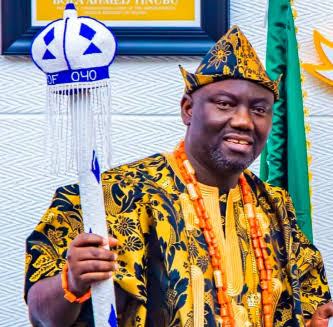
The history of Oyo, one of the most sophisticated and enduring Yoruba kingdoms, has often suffered from misinterpretation, distortion, and even deliberate erasure. Some of these inaccuracies, whether by omission or commission, have become embedded in mainstream narratives, thereby misleading generations.
One of the earliest and most referenced works on Yoruba history, The History of the Yorubas by Rev. Samuel Johnson, while monumental in its effort, contains significant errors and controversial claims—particularly about the origin of the Oyo Empire and the role of traditional rulers. Johnson’s Christian missionary background and Victorian influences undeniably shaped his perspective, leading to a portrayal of Yoruba spirituality, governance, and culture through a colonial and evangelical lens.
Similarly, the late Chief Obafemi Awolowo, a revered nationalist and political icon, is not without criticism. In his pursuit of modernization and governance reforms during the Western Region’s post-independence years, many allege that he weakened, if not outright dismantled, the traditional institution of kingship. This move, while seen by some as progressive, deeply undermined the spiritual and political sanctity of Yoruba monarchical systems, especially in regions like Oyo, where the Alaafin represents not just a ruler, but a custodian of ancestral legitimacy.
Yet, in our effort to critique, we must also hope that history will be kind—if and only if we, the inheritors of this legacy, dare to rewrite it with truth, context, and courage.
“Oyo lo ni ile Kaaro o jiire.”
(Oyo is the rightful custodian of the land of ‘Good Morning.’)
That sacred greeting, “kaaro o jiire,” originated from Oyo, echoing not just politeness but the civility of an ancient kingdom rooted in wisdom and order. However, it is disturbing to now hear versions of history where Òrìṣà (deities) are said to become Oba (kings) in a reversal of spiritual and political order—suggesting new interpretations that lack historical grounding.
This leads us to a critical question: Is the Oni of Ife truly one of Odùduwà’s sons? Or is he rather a spiritual custodian in a different order from the political authority that Odùduwà’s descendants exercised through kingdoms like
Let us tread carefully in the stories we tell and the histories we write. For in misnaming the past, we not only disrespect our ancestors but mislead our descendants. In this age of cultural awakening, may we seek a history that is not convenient, but correct—restoring dignity, accuracy, and purpose to our identity as a people.
https://www.facebook.com/share/v/1AYsKzwoXH/?mibextid=wwXIfr
By: Jide Adesina
Proudly Oyo prince

